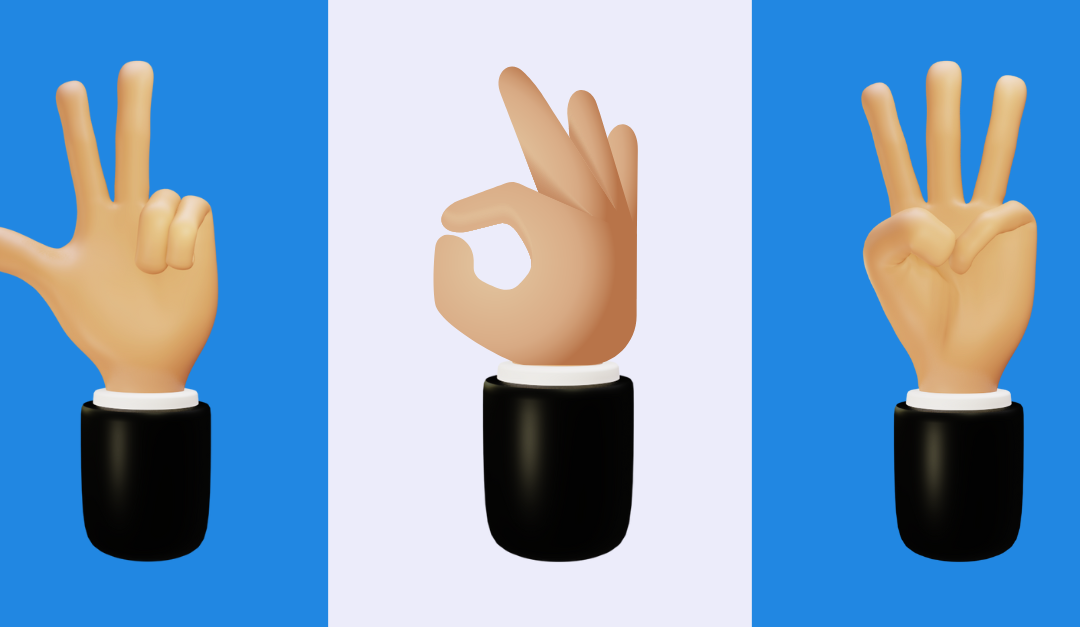Everyone who moves to a new country faces culture shock, no matter what. When it happens, we all look around us and think, “Why do people here do these strange things? What in the world is going on?” We’re confused about how to handle situations in this new context because we don’t understand the cultural norms of the new place.
Throughout our lives, we learn to react to situations based on our particular cultural perspectives—usually the ones passed to us by our families, schools, religion, and friends. We automatically accept and do these things without realizing it because they are culturally conditioned in us from childhood and how we grew up. These norms have proven over generations to help society survive, which is why they are so ingrained.
The reality is that not everyone in the world thinks the way we do culturally, nor do they automatically react to everyday situations the same way. When I first moved to China, I was ordering some food at our school cafeteria. I held up three fingers to indicate I wanted the 3rd choice on the menu. The cafeteria lady looked at me in total confusion. I later found out that the Chinese make the number three with the hand using the last three fingers (including the pinky), whereas, in the US, it’s with the first three fingers (including the index finger). In this instance, our communication wasn’t culturally clear or successful.
In general, a nation’s people share specific cultural characteristics. For example, an American one is to have a strong sense of outspokenness and individualism, which has proven to be a valuable contributor to US society. The Chinese have a strong sense of considering the needs of the community first above the needs of the individual, which has helped preserve continuity and strength in one of the most populous countries on earth. In Mexico, there is a strong sense of socializing and having a good time, which helps promote family bonds and good relations with others.
Yet, suppose we’re not of that culture. In that case, international educators who are confused or uncomfortable about cultural occurrences may have heard or said comments like these in their various posts around the world—all reflecting culture shock.
- “Why in the world are they always late? Don’t they own a watch?”
- “Why do they always follow the crowd?”
- “Can’t they be serious about anything? It is so hard to get them to focus on our work.”
- “Can’t they just be direct and say what’s on their mind?”
- “All I want is a cold drink with ice. Is that too much to ask?”
Counseling expert and long-time (former) expat Carrie Jones contributed the following thoughts about culture shock to my book Teach or Lead Abroad: Easily Find Your Dream Job in International Schools.
IN HER OWN WORDS …
Carrie Jones, Director of Counseling,
LCSW (Licensed Counselor of Social Work)
Former Director of Counseling for Community Center Shanghai
“It’s helpful to understand that all of us experience some culture shock. This is because culture encompasses some of the most fundamental and intimate aspects of our lives — language, religion, lifestyle, daily routines, habits, and political and economic systems. When these suddenly change, naturally, we experience strain as we attempt to make the psychological adaptations. We also experience confusion as we encounter so much that is completely new to us. In my experience, most expats who will embark on the great adventure of living abroad are pretty high achievers—successful and accomplished individuals. However, for the first few months in a completely new place, these people, for whom things usually come pretty easily, suddenly struggle with some of the very basics—shopping, communicating, literacy, transportation, etc. We also experience a sense of loss or deprivation regarding things, places, people, and even roles and status we left behind. So naturally, we experience some struggles. The good news is that although culture shock is inevitable, it also is manageable. By being intentional about practicing healthy coping skills, reaching out for extra support when needed, keeping an open mind and balanced perspective, and perhaps most important of all, maintaining a sense of humor, you will navigate the tough times and reach a place where you feel more settled and comfortable in the new culture.”
Psychologically, we all need to feel like we’re in control. Being in control means we understand what is going on and how to react to the surrounding stimuli. But when we face cultural change and misunderstanding, we then become stressed. The more extreme that discomfort, the more stressed we’ll become, and that is when deep culture shock sets in.

That is the irony of our lives as international educators. We’re attracted to working abroad because of the allure of living for extended periods within different cultures. Yet, the cultural differences that attract us can also overwhelm us. We don’t understand specific cultural nuances and, in some cases, may actually be turned off by some of them.
Native employees who work with foreigners face culture shock, too. Even though the school is in their own country, they may not entirely understand their foreign colleagues and foreign work style any better than expats fully understand theirs.

In reality, no matter how long we live in a culture, we will occasionally encounter certain aspects of culture shock. It’s an inevitable part of living and working internationally.
Yet, culture shock doesn’t happen only when we live abroad. When we return to our home countries after having lived internationally for a long while, we experience reverse culture shock. That return is like holding a mirror up to our collective selves and wondering, why in the world do these people (this time our fellow citizens) do this? When that happens, you realize the international lifestyle has rubbed off on you more than you may have recognized — often a shared experience of expats who return home after an extended time abroad. After we’ve adapted, we may have thought of comments such as the following:
- “Why are these people so time-driven? Can’t they enjoy life a little more without watching the clock?”
- “Why do my co-workers always question every decision with a major discussion about each goal we have? Why can’t they accept that is the direction we’re going in and trust the group’s decision?”
- Why are they so serious about everything? A business meeting doesn’t have to be all about work, work, work all the time.”
- “Would it hurt him to hold his tongue just this once so the group can get along and perform better?”
- “Why is it so hard to get a hot tea around this place?”
Culture is a context through which we communicate with others in our society. Yet, our exposure to other cultures, especially when we live in a different country, expands our ways of looking at the world around us. We expats see various cultural ways of processing the world around us. Sometimes, we’ll adapt because we prefer these different ways. For example, after living in China for so long, I prefer eating a lot of things with chopsticks. It wasn’t what I grew up using, but eating certain things with chopsticks, like salad and fried chicken, is now my inclination.

When culture shock sets in, it’s okay to take a step back. For example, I retreat to spend time at home in a familiar setting. I’ll go to a comforting restaurant or watch a movie or favorite TV show in English. I don’t have to live the foreign experience every single moment of every day. In my view, that’s the key to successfully living abroad — knowing when to dive in and when to retreat. It’s all about the ebb and flow of the experience to gain a sustained appreciation of the life of the expat educator.
Copyright 2024 by Kelley Ridings
There are three ways I can help you as you prepare for your experience as an international educator.
- Subscribe to this newsletter.
- You can follow my LinkedIn profile to learn more about job search insights and life as an international educator.
- Buy my book, Teach or Lead Abroad: Easily Find Your Dream Job in International Schools, by clicking on Visit my Store. Available on Amazon or Audible.

